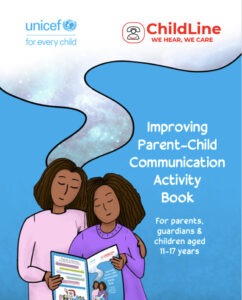What is emotional sensitivity and why do we need it?
Emotional sensitivity refers to a child’s ability to respond emotionally, as is appropriate for their age, in certain situations. This is usually based on both their ability to identify and understand their feelings and their ability to recognize and respond to others’ emotional expressions.
Is your child able to name their emotions and identify why they feel the way they do? Does your child cry often and/or have difficulty moving past their emotions? Do they frequently get overwhelmed? Do they often struggle with trying not to cry when criticized or scolded?
If the answer is yes for most or all of these, your child may be emotionally sensitive. Despite what people may say, especially about boys, this is not a negative trait or social disadvantage. Unless it prevents them from living a normal and healthy life, this sensitivity is beneficial for your child’s development.
Knowing how to identify and cope with the emotions of yourself and others is a crucial element of emotional intelligence and, by extension your ability to self-reflect and perform self-care. Learning from a young age how to deal with big and intimidating emotions like grief, guilt, and jealousy helps us to become self-sufficient and socially capable adults.
Why would boys need to be more sensitive?
Don’t children cry enough already? Don’t they throw enough tantrums? A lot of children cry and throw fits when they don’t get what they want. However, in many cultures, boys are expected to be “tougher” and “less emotional”. They are often expected to suppress their emotions to give the impression of strength and composure, according to a very narrow and harmful concept of masculinity.
This cultural belief teaches boys that expressing emotions is weak or “too feminine” for a boy to do. However, human beings, regardless of gender, aren’t meant to suppress their feelings for an extended period. We are deeply emotional beings and therefore the ability to experience, express, understand, and interact more is an advantage.
How can you teach your son to be more sensitive?
- Ask your son how he feels about certain events, even if they are seemingly unimportant. This can help him to learn to acknowledge and express his thoughts and feelings.
- Model emotional intelligence and praise him when he is willing to talk about feelings or acknowledge the feelings of others, especially if you are a male figure in his life.
- Make the effort to notice and acknowledge his feelings in everyday moments. Try asking “How did you feel when dad said that?” or “What do you think of doing this today?”
- Give him room to express negative emotions like anger or jealousy, even if it frustrates or inconveniences you. Teach him healthy ways to deal with these emotions but assure him that his feelings are normal.
- Once appropriate, make a habit of telling him how you This shows him that adults also go through the emotions that he does while showing that it’s possible to deal with them without lashing out at others.
All children are different and may process their feelings differently. Some children, male or female, may naturally prefer to keep their thoughts and feelings to themselves. However, as a parent or guardian, you have the power to change their impression of emotional sensitivity, in themselves and others, in positive or negative ways. Be a beacon of mental health and healthy emotional coping for your child, so you can equip him/her with the tools for healthy adult life.
[/et_pb_text][/et_pb_column][/et_pb_row][/et_pb_section]






